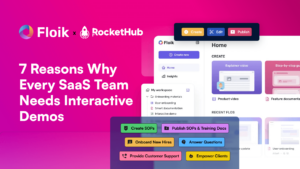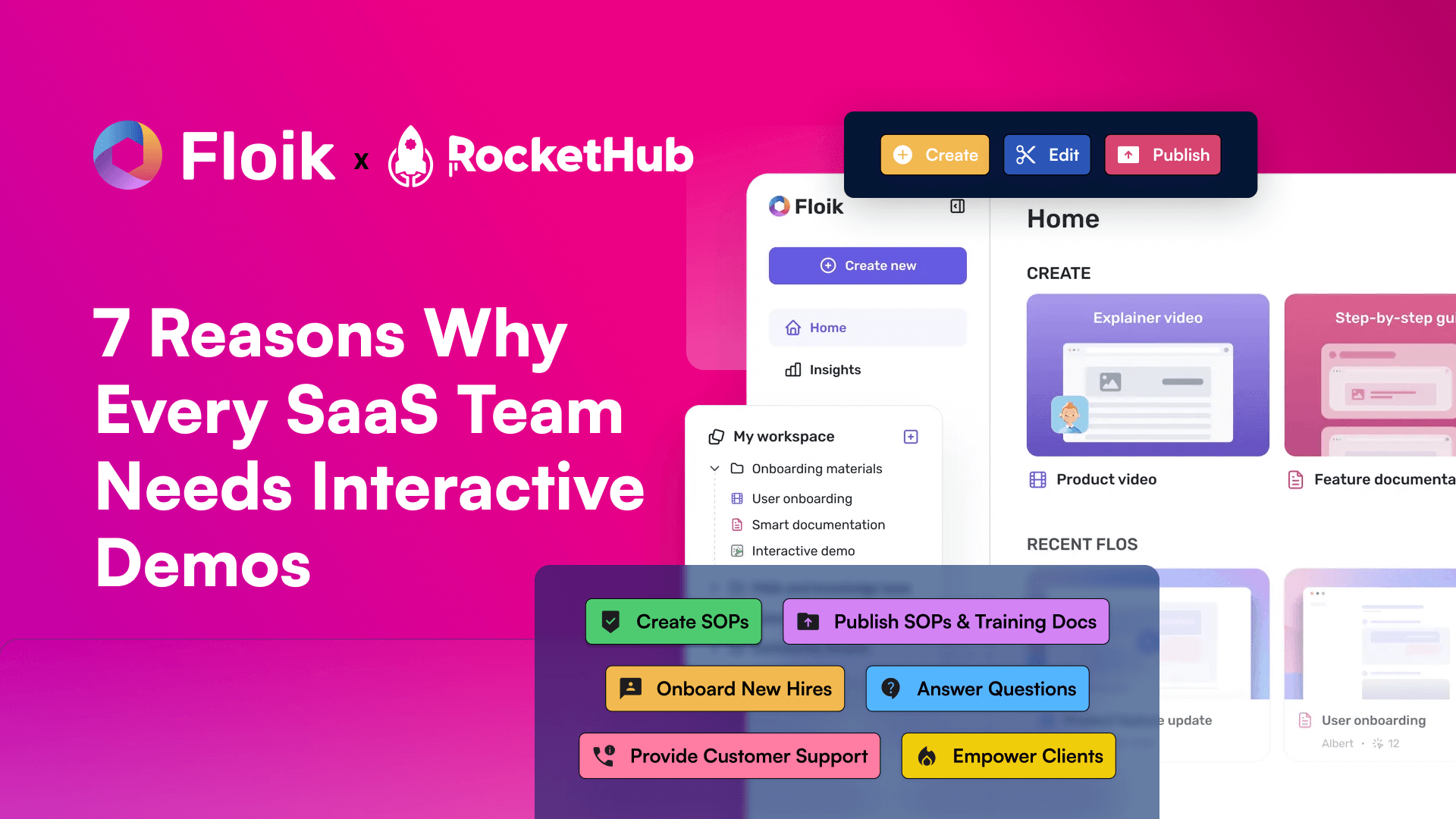
How to Embrace Lean Methodology If You Have a Small Business
- Angel Alfred
- June 23, 2023

It can be challenging to keep up with the latest business trends and methodologies. With limited resources and a constantly evolving marketplace, it’s important to find ways to streamline your operations and make the most out of your time and money. That’s why in this blog post, we’ll explore how to embrace lean methodology if you have a small business. We’ll cover the basics of lean, including its key principles and tools, and provide useful tips and strategies!
What is Lean Methodology?

Lean methodology, also known as Lean thinking or Lean principles, is an approach to business management and process improvement that originated in the manufacturing industry but has since been applied to various other sectors. It aims to maximize customer value while minimizing waste and inefficiencies in operations.
The core concept of Lean methodology is to create more value for customers by eliminating non-value-added activities and streamlining processes. It emphasizes a continuous improvement mindset and encourages organizations to strive for efficiency, quality, and customer satisfaction.
Key principles of Lean methodology include:
- Value: Focus on understanding customer needs and delivering products or services that provide value to them.
- Value Stream: Identify and map the end-to-end process required to deliver value to customers, highlighting areas of waste, delays, and bottlenecks.
- Flow: Ensure a smooth and uninterrupted flow of work through the value stream, eliminating obstacles and reducing lead times.
- Pull: Establish a pull-based system where work is initiated based on customer demand, rather than pushing more work into the system.
- Perfection: Continuously seek improvement and strive for perfection by relentlessly eliminating waste, improving processes, and engaging employees in problem-solving.
What is the Significance of Lean Methodology for Small Businesses?
Lean methodology holds significant benefits for small businesses.
Here are some of the key advantages:
Efficiency and Cost Reduction
Lean principles help small businesses identify and eliminate waste in their processes, such as unnecessary steps, waiting times, or overproduction. By streamlining operations, small businesses can increase efficiency, reduce costs, and improve their bottom line.
Improved Quality
Lean methodology emphasizes the importance of delivering value to customers and ensuring high-quality products or services. By focusing on eliminating defects, errors, and rework, small businesses can enhance the quality of their offerings, leading to customer satisfaction and loyalty.
Flexibility and Adaptability
Small businesses often need to be agile and respond quickly to changing market conditions. Lean methodology promotes a culture of continuous improvement and empowers employees to identify and address issues promptly.
This agility enables small businesses to adapt their processes and offerings to meet customer demands effectively.
Customer-Centric Approach
Understanding customer needs and delivering value is central to Lean methodology. Small businesses can use Lean principles to gain insights into customer preferences, refine their offerings, and enhance the overall customer experience.
This customer-centric approach can help small businesses build stronger relationships and differentiate themselves from competitors.
Employee Engagement and Empowerment
Lean methodology encourages employees at all levels to actively participate in process improvement. By involving employees in problem-solving and decision-making, small businesses can foster a culture of engagement, ownership, and continuous learning.
This can boost employee morale, satisfaction, and retention.
Scalability
As small businesses grow, the implementation of Lean methodology provides a solid foundation for scalability. By establishing efficient processes and eliminating waste early on, small businesses can scale their operations more effectively without experiencing bottlenecks or decreased quality.
Competitive Advantage
Lean methodology enables small businesses to optimize their operations, improve customer satisfaction, and reduce costs. These advantages can translate into a competitive edge by delivering higher value, faster delivery, and improved customer experiences compared to competitors.
Read: Twitter vs Instagram: Which is Better for Your Business?
How to Embrace Lean Methodology as a Small Business
Let’s dive in deeper and find out how lean methodology helps small businesses.
Understanding Lean Methodology
Before diving into the implementation of Lean methodology, it’s important to understand its core principles. Lean methodology focuses on eliminating waste, enhancing efficiency, and maximizing customer value. The five key principles of Lean are value, value stream, flow, pull, and perfection.
Value refers to understanding and delivering what the customer truly wants. Value stream involves mapping the end-to-end process and identifying waste. Flow emphasizes the smooth and uninterrupted movement of work. Pull ensures that work is initiated based on customer demand.
Finally, perfection calls for continuous improvement and striving for excellence.
Identify and Eliminate Waste
The first step in embracing Lean methodology is to identify and eliminate waste in your business processes. Waste can take various forms, including unnecessary steps, waiting times, overproduction, excess inventory, defects, and excessive motion.
Conduct a thorough analysis of your processes, involve your employees, and identify areas where waste occurs.
Once identified, prioritize the waste areas and develop a plan to eliminate or minimize them. This could involve simplifying processes, improving communication and collaboration, and implementing standardized work procedures.
Streamline the Value Stream
After eliminating waste, the next focus is streamlining the value stream—the sequence of steps required to deliver value to customers. Map out the entire process, from order placement to delivery or service completion. Identify bottlenecks, delays, and inefficiencies along the way.
Look for opportunities to simplify and streamline the flow of work. Break down silos and encourage cross-functional collaboration. Streamlining the value stream enhances efficiency, reduces lead times, and improves overall process performance.
Empower Employees for Continuous Improvement
Embracing Lean methodology requires creating a culture of continuous improvement. Involve and empower your employees in the process. Encourage them to identify problems, suggest improvements, and participate in decision-making.
Establish regular communication channels, such as suggestion boxes or improvement boards, to gather employee input.
Just as Lean Methodology can revolutionize manufacturing or software development, it can also create efficiencies in marketing and advertising. A perfect example is The Remnant Agency. They apply Lean principles to their media buying strategy by purchasing unsold ad units at discounted rates, thereby reducing waste and creating value for their clients.
Implement training programs to enhance employees’ problem-solving and process improvement skills. By engaging employees, you tap into their knowledge and experience, fostering a sense of ownership and commitment to driving Lean principles forward.
Implement Pull-Based Systems
Traditionally, businesses operate on a push-based system, where work is pushed through the process based on forecasts or production schedules.
Lean methodology advocates for a pull-based system, where work is initiated based on actual customer demand. Implementing pull-based systems helps prevent overproduction and reduces the risk of excess inventory.
Align your production or service delivery with customer demand, whether through just-in-time inventory management or agile project management techniques. By responding directly to customer needs, you can minimize waste and improve customer satisfaction.
Measure and Track Key Performance Indicators
To gauge the effectiveness of Lean implementation, it’s essential to measure and track key performance indicators (KPIs). Identify relevant metrics that align with your business goals and the specific areas you are targeting for improvement.
KPIs could include cycle time, customer satisfaction scores, defect rates, inventory turnover, or on-time delivery.
Regularly monitor these KPIs and use the data to identify trends, spot areas for further improvement, and make data-driven decisions. Measurement allows you to assess progress and ensure that Lean principles are delivering the desired results.
Foster a Culture of Innovation and Learning
A key aspect of Lean methodology is fostering a culture of innovation and learning. Encourage your employees to experiment, take calculated risks, and find new ways to improve processes and deliver value to customers.
Provide platforms for sharing ideas and knowledge, such as regular team meetings, brainstorming sessions, or innovation workshops.
Celebrate successes and recognize employees’ contributions to process improvement. By nurturing a culture of innovation, you create an environment where continuous improvement becomes a natural part of your small business’s DNA.
You may also like: 10 Steps to Start a Successful Side Hustle
Conclusion
Embracing Lean methodology can be transformative for small businesses. By eliminating waste, streamlining processes, and focusing on customer value, small businesses can achieve greater efficiency, cost reduction, and customer satisfaction. By implementing Lean principles, small businesses can position themselves for sustainable growth, increased competitiveness, and long-term success in an ever-changing business landscape.
Share This Post
Angel Alfred
Angel is a digital marketer, a mental health speaker, and above all, a writer. She loves being a part of the RocketHub team and is keen on learning and taking over new challenges every day!
Table of Contents
Get The Latest Updates
Subscribe To Our Weekly Newsletter
Sign up below to be one of the first crew members onboard and get early access to amazing deals.
Recent Posts


Social Media
Categories
Related Posts

Lifetime Deal Platforms
The best lifetime deal platforms for software. Platforms lik RocketHub scour the web for the highest quality products to bring buyers the best lifetime deals on their platform.

How to Work for Yourself + 13 Solo Business Ideas
Do you ever wonder if being your own boss could truly set you free? In this article, we’ll explore the theory that unleashing entrepreneurial freedom

7 Reasons Why Every SaaS Team Needs Interactive Demos
Making a Case for Interactive Demos: 7 Reasons Why Every SaaS Team Needs Them Let me paint a scenario for you. You want to buy


